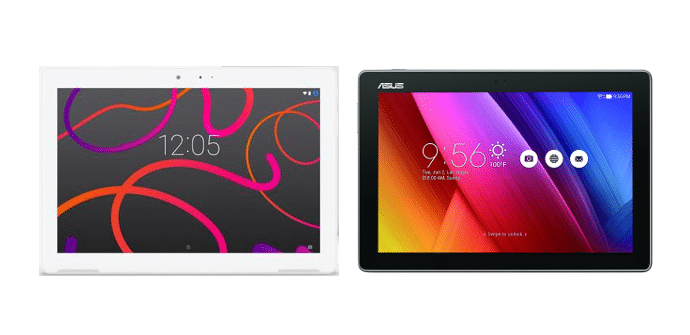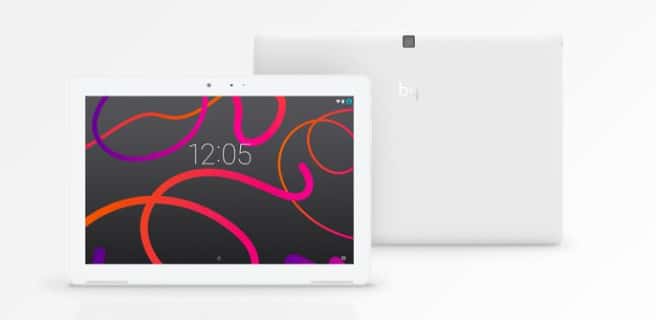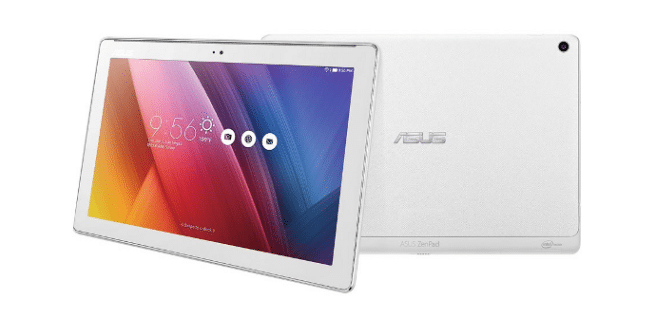
As you already know, Asus This year has made a deep renovation in its catalog of tablets, replacing its classic MeMO Pad range with the new ZenPad, which include some high-end model, but which is located for the most part between the basic range and the Midrange, as is the case in the latter with the ZenPad 10, an inescapable rival for the new Aquaris M10 de bq. Which of the two is a better investment for you? To a large extent it will depend, as always, on what you are looking for in a tablet, but we hope that with this review of the Technical specifications of both we can help you to value it.
Integrated
The two tabets leave a good feeling in terms of design, despite the fact that none of them offers us premium materials (something normal in mid-range tablets), but the special mention must be for the ZenPad 10 simply thanks to that detail, which it shares with the rest of the models in the range, of having interchangeable rear covers that allow us to provide it with extra functions.
Dimensions
Although the Aquaris M10 It is somewhat more compact, as you can see the size differences between the two are quite small (24,6x17,1 inch against 25,16x17,2 inch). The same happens when we look at the thickness of each (8,2 mm against 7,9 mm). With regard to weight, on the other hand, if we already find a somewhat more substantial difference, since the bq is noticeably lighter (470 grams against 510 grams).

Screen
When we get to the screen, however, we do find an absolute tie, since they are both the same size (10.1 inches), the same aspect ratio (16:10, optimized for video playback), the same resolution (1280 x 800) and therefore the same pixel density (PPI 149). Nothing here that can help us decide between one and the other, therefore.
Performance
The same happens in the performance section, in which, at least for technical specifications, there is no data that undoes the equality: the two mount a quad-core processor with a frequency of 1,2 GHz who they accompany 2 GB RAM memory. The two also arrive with Android Lollipop. We would have to wait to see them face to face in a real use test to see if there is any difference in fluidity due to the software and the optimization that each one makes of its chip.
Storage capacity
If there is no significant difference in the previous sections, even less can be expected in the area of storage capacity, where the standard of storage seems to be more established for mid-range tablets. 16 GB storage capacity externally expandable via card micro-SD.

Cameras
Although it is not a section to which we usually advise paying too much attention, the truth is that it can be one of those that makes a difference between the two, especially if for some reason we are going to use them frequently: while the Aquaris M10 It has a main chamber of 5 MP and another front of 2 MP, those of the ZenPad 10 sound 2 MP y 0,3 MP, respectively (there is a somewhat more expensive model in which they are also 5 and 2 MP, but it is rarer to find it in our country).
Autonomy
We cannot advance any conclusion regarding which one could have an advantage in the autonomy section, not only because we have not yet seen independent tests for the tablet of bq, but because in the case of Asus we don't even have the battery capacity data. The only thing we can confirm is that the battery of the Aquaris M10 is 7280 mAh.
Price
Although it depends a bit on the dealer, the ZenPad 10 has an advantage when it comes to price since it can be found for around $200While Aquaris M10 It is sold on the website of bq by $230. The price difference is not very large, but neither is the technical specifications, so it is already subject to personal assessment whether or not it may be worth investing 30 euros more to do with one or the other.
"There is no data that undoes the equality either: the two mount a quad-core processor with a frequency of 1,2 GHz"
But one is an Intel processor and another is MediaTek. There is no difference?